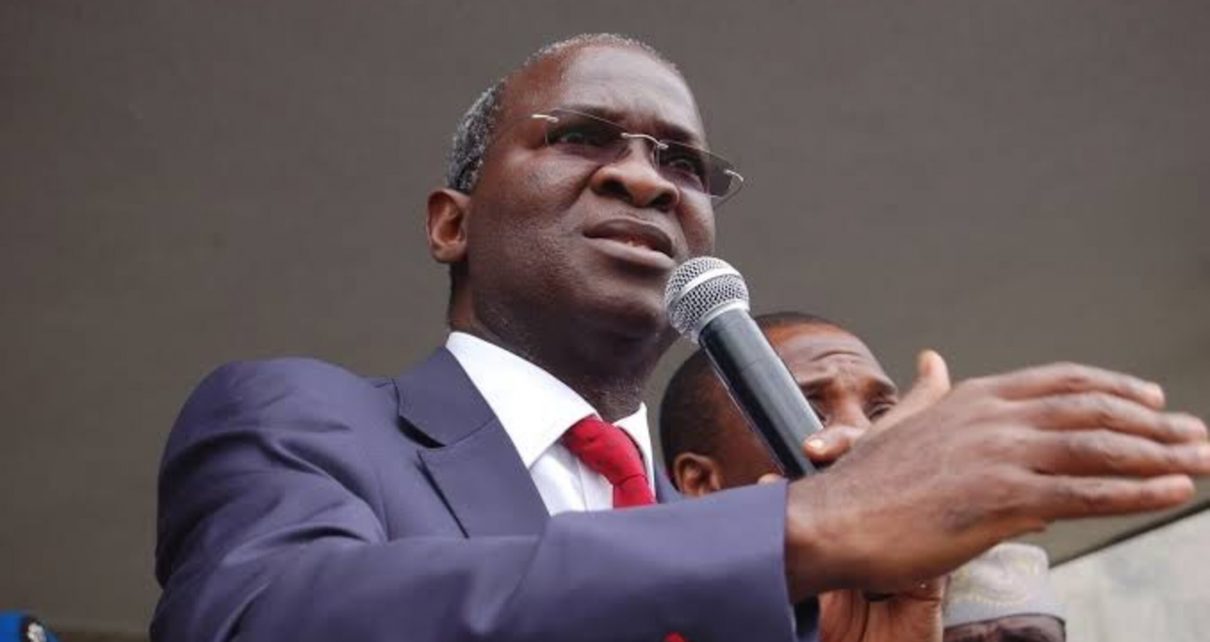Mr. Babatunde Fashola (SAN), the Minister of Works and Housing, has encouraged Directors of Lands at the Federal and State levels to give answers to problems impeding land management and administration nationally.
At the 27th Conference of Directors of Lands in the Federal, States, Departments, and Agencies (MDAs), which is taking place in Abuja on Wednesday, Fashola made this call.
The 27th conference, which is taking place from October 12 to October 13, has as its theme “The Land Use Act and Land Management Responsibilities of the Federating Units.”
The minister stated that the meeting was likely to result in a mutually intergovernmental interaction due to the incorrect interpretation of the land use statute and contradictory functions in administering land by various tiers of government.
“It presents a valuable opportunity to critically examine the powers of each tier of government in land administration in respect of land acquisition, allocation and landed property management in Nigeria.
“All human endeavour and development efforts are hinged on land and land resources. This makes land a very sensitive and emotive issue.
“The Federal Ministry of Works and Housing, representing the Federal Government, being one of the Federating units has the responsibility of providing housing for Nigerians.
“It is pertinent to note that there have been conflicts in the administration and management of these lands between the Federal and state governments.
“Hence the need for collaboration in land administration in a multi-level administrative system that we have in Nigeria,’’ he said.
Fashola, represented by Mr. Godwin Ityoachimin, who is the Director of Lands and Housing Development at FMWH, gave the participants the task of critically analysing issues like the government buying land for projects and the early payment of compensation to people whose homes were taken away.
He listed additional expenses incurred by the government due to delayed compensation payments, trespassing on and encroaching upon federal government property, unplanned land development, and the exploitation of all available land resources.
The minister expressed hope that the meeting will produce a significant and practical answer to the issues affecting land management and administration at the various levels of government.
In his remarks, Mr. Uzo Chukwuwike, who was speaking on behalf of Mr. Bashir Alkali, the Permanent Secretary of the FMWH, urged the attendees to keep Nigerians’ interests and needs at the forefront of their work.
“Knowing that land is central to the overall existence of our nation, critically examine the land administration and management issues under the Land Use Act and come up with solutions to eliminate areas of conflict among the operators.
“The outcome of your deliberations will have a tremendous effect on the policy direction and reforms in the land and housing sector. The focus should be on the implications for the national economy and the prosperity of our people,’’ Alkai said.
The conference, according to Mr. Godwin Ityoachimin, Director of Lands and Housing Development at FMWH, was held to discuss issues with the Land Use Act.
He asserts that the Land Use Act, which has been in effect since 1978, serves as the foundation for the management and control of land in Nigeria.
“A law is as good as the people that implement it. So it has been very challenging relating with the tiers of government in the past, the state governors have been ascribed so many powers.
“It is true the law gives them so much power, but in the exercising of these powers there are abuses here and there and then at the federal level it impacts negatively on our services, we are unable to reach Nigerians.
“The way the federal government would have reached in terms of infrastructure and housing provision because some of our projects have been stalled because of constraints inherent in the land acquisition process.
“Sometimes even lands vested in the Federal Government, the states know over time, maybe because of the value of those properties, state government operatives willfully move into those properties. This has created a lot of friction’’.
Speaking from a legal standpoint, Mr. Benjamin Okolo, Director, Legal Services, FMWH, stated that the Act’s shortcomings included a lack of a clear distinction between the federal, state, and local governments’ respective authority and obligations.
“The language of the act with respect to management powers of the governor is unclear from provisions of Sections 1, 2 and 5 of the Act.
“Whether the governor’s power is exclusive to the management of land covered by a grant of a statutory right of occupancy or to all rights of occupancy among other challenges.
Okolo advised that the Land Use Act be completely revised and included to the constitution’s concurrent legislative list as a result.
Additionally, he suggested that the federal and state departments in charge of land use and urban planning work together to draft a document that would be sent to the National Council of States for the issuing of regulations.
This, according to Okolo, should address some of the issues raised, including the obligation to provide compensation in the interim until the Land Use Act may be modified.
The conference is an annual gathering that gives the directors a chance to discuss important issues regarding land management and share experiences in order to enhance each person’s professional abilities and knowledge and to offer suggestions for the best management or administration of the nation’s land.


